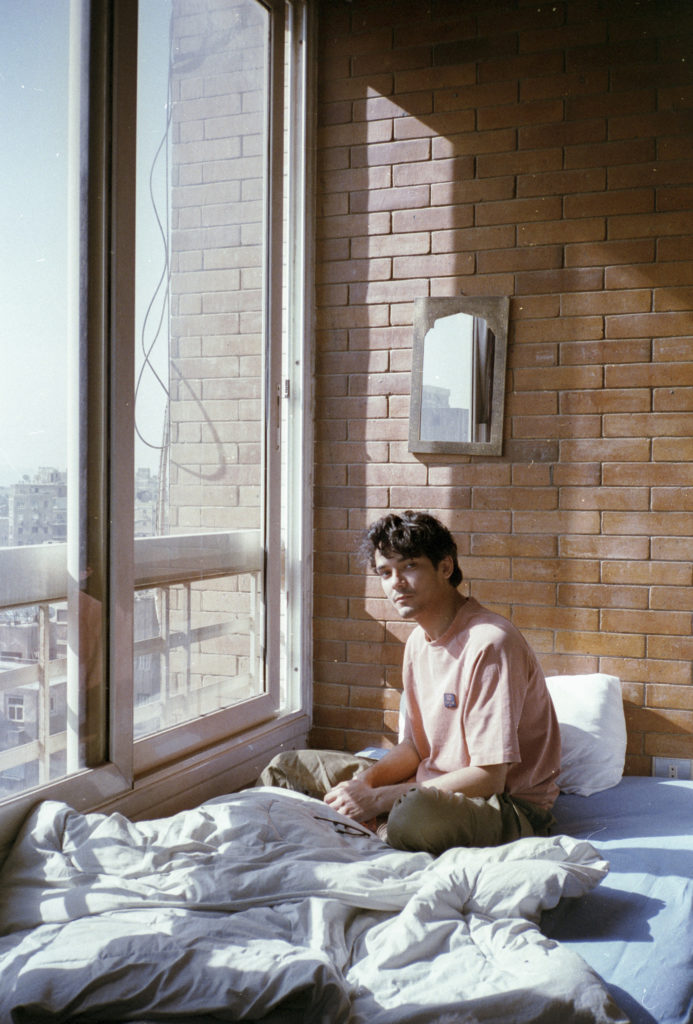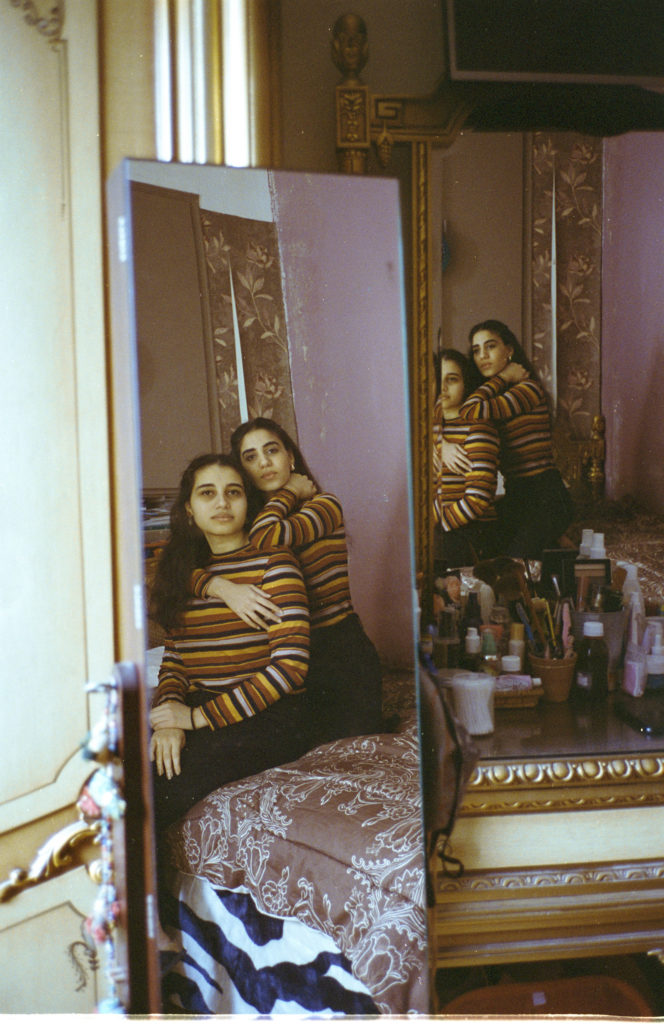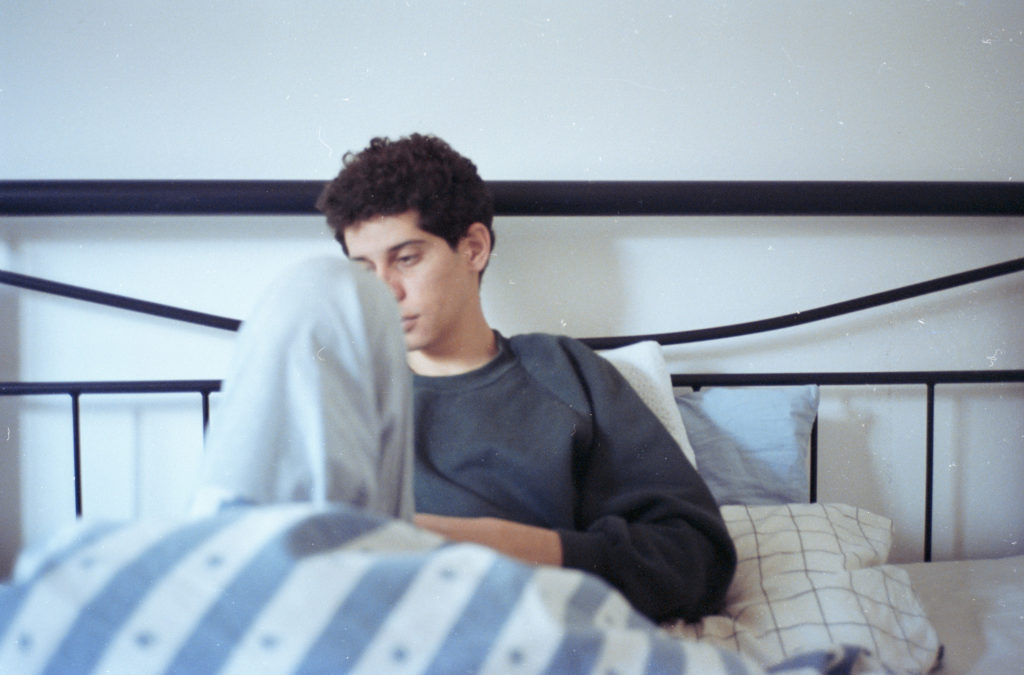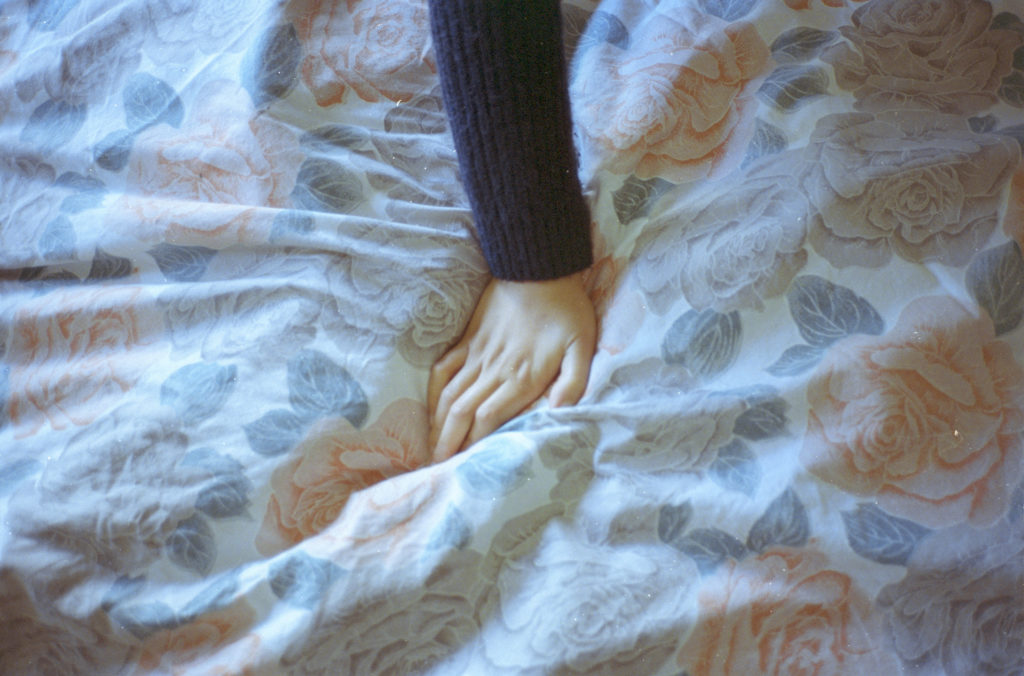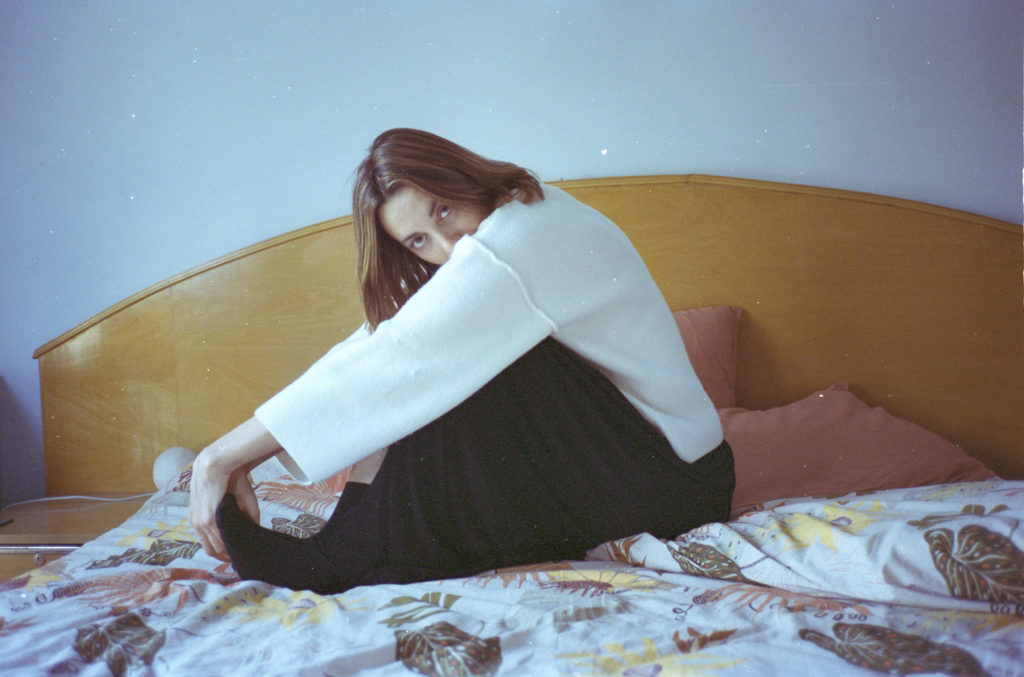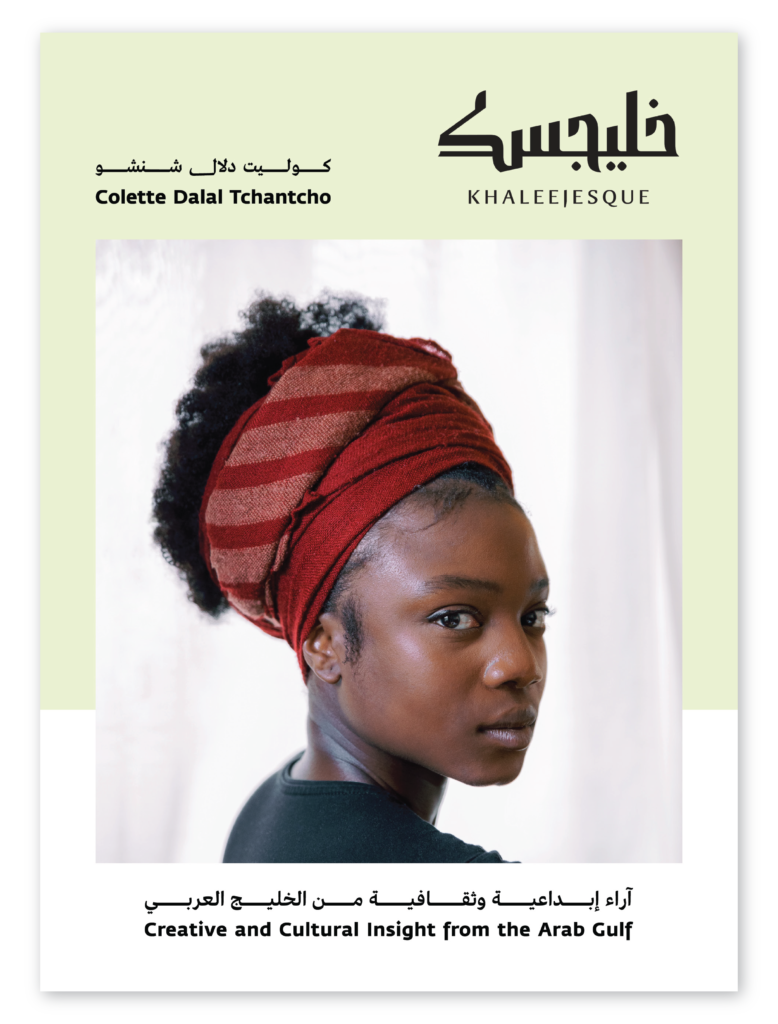
Editor’s Letter
This issue has taken us a while to bring to the public, as with almost every other organization we’ve had to adapt and pivot in many ways. Now this is the first time we present an issue solely digitally so we delightfully took advantage of longer word counts and experimented presenting content in different formats.
While COVID-19 has disrupted any semblance of a normal life we once knew, we’ve noticed people taking this moment of pause as a way to look inwards. In our cover story, Colette Dalal Tchantcho talks about her life experience as a young Kuwaiti-Cameroonian actor facing a constant battle with identity and belonging, and how she’s learning to embrace and own her story. In Saudi, visual artist Obadah Aljefri uses wit and sarcasm to create transformative experiences that touch upon topics that plague our modern society.
In these times of social distancing and remote work, concepts of community and creative expression have become a priority to fulfill the void. Bringing people together through curiosity is what led Mikey Muhanna to launch Afikra, and what made Sultan Alqassemi move his popular Cultural Majlis to a digital platform. We hope these stories will inspire you to look inwards, engage your curiosity, and help to find your way in this ever changing world.
Editor-in-Chief
Fouz Al-Sabah
Fouz Al-Sabah, Editor-in-Chief
fouz@khaleejesque.me
Malak Al-Suwaihel, Managing Editor
malak@khaleejesque.me
Mahjabeen Ahmedi, Senior Designer
mahjabeen@khaleejesque.me
Mariam Al-Hassan, Graphic Designer
mariam@khaleejesque.me
Jood AlThukair, Writer
Saira Malik , Writer
Zainab Mirza, Writer
Yasmine Mohahamed, Writer
Khaled Alqahtani, Writer
Dalal NasrAllah, Translator
Anfal Al-Mutairi, Translator
Aseel Mairza, Translator
Sara Al-Sultan, Translator
Dr. Abdulrahman Alghannam
Dr. Abdulrahman Alghannam is assistant professor at the King Faisal University (KSA). His research focuses specifically on the development of film and cultural industries in the Arab Gulf States. Alghannam is the co-editor of the Film Production in the Arabian Gulf: The Industry and Culture (The Arab Literature Center, 2020). His recent research about Khaleeji cinema has featured in The Political Economy of Local Cinema: A Critical Introduction (Peter Lang, 2020). Alghannam received his PhD in Film Studies from the University of St Andrews (UK) in 2021. He holds MA in Mass Communication from the University of Central Missouri (US) in 2014.
Dr. Jawaher Khaled Albader
Jawaher Khaled AlBader , Ph.D. is an assistant professor in the Department of Visual Communication Design at Kuwait University. She is involved in community-based activities through Art Studio Kuwait. She received her Ph.D. in Curriculum Instructions in Art and Design Education from ASU under the mentorship of Professor Eric Margolis. Dr. Al-Bader also holds an MFA in Painting from Pratt Institute. Her MFA installation titled Suspended Enclosures explored the multidimensionality of spaces. Her undergraduate degrees from Rhode Island School of Design include a BArch and BFA. Her multidisciplinary research in visual culture and ideology, bridging boundaries between all aspects of life.
BArch, BFA, MFA, PhDAssistant Professor College of Architecture, Kuwait University
Dr. Melissa Langworthy
Dr. Melissa Langworthy is a Kuwait-based feminist economist specializing in equality and empowerment in entrepreneurship, social protection, and development programs. She has consulted on topics of women’s rights, decent work, and empowerment for UN Women, Facebook, and Oxfam MENA, among others.
Eslam Abd El Salam
Eslam And El Salam is an Egyptian photographer living and working in Cairo for the past 7 years. A natural archivist, Eslam tends to question matters of memory and time, identity and self-exploration, and synchronicities and spirituality from his encounters and experience—forming an enormous net and library of memories. His creative practice is concerned with all that is intuitive and serendipitous to the present moment and the unaccounted for elements that arise while working on a project. Text with still images has been both crucial and inevitable to his practice — as well as drawings, moving images, and sound when there is room for them to sneak in. Recently, and in tandem with the quarantine measures brought on by the COVID-19 pandemic, he has been working on a project about the physical intimacy of our rooms and our ever evolving journey with our intimate spaces. The project began in late December 2020, and is on-going, and was recently exhibited as part of Roznama 8 at Contemporary Image Collective (CiC).
Salam Zaied
Salam Zaied is a London based portrait and fashion photographer with Middle Eastern and West Indian roots. Salam has been working in the industry for 3 years focusing on perfecting her portraiture work. She works prominently with Black and ethnic minority talent with an aim to diversify the industry. Her signature style is visible through her striking use of color and vibrancy. Salam is currently working on a long format piece in a more photojournalistic style that will span the next few years, looking into the intricacies of London life as an immigrant child from the Middle East.
info@khaleejesque.me
Cover Story
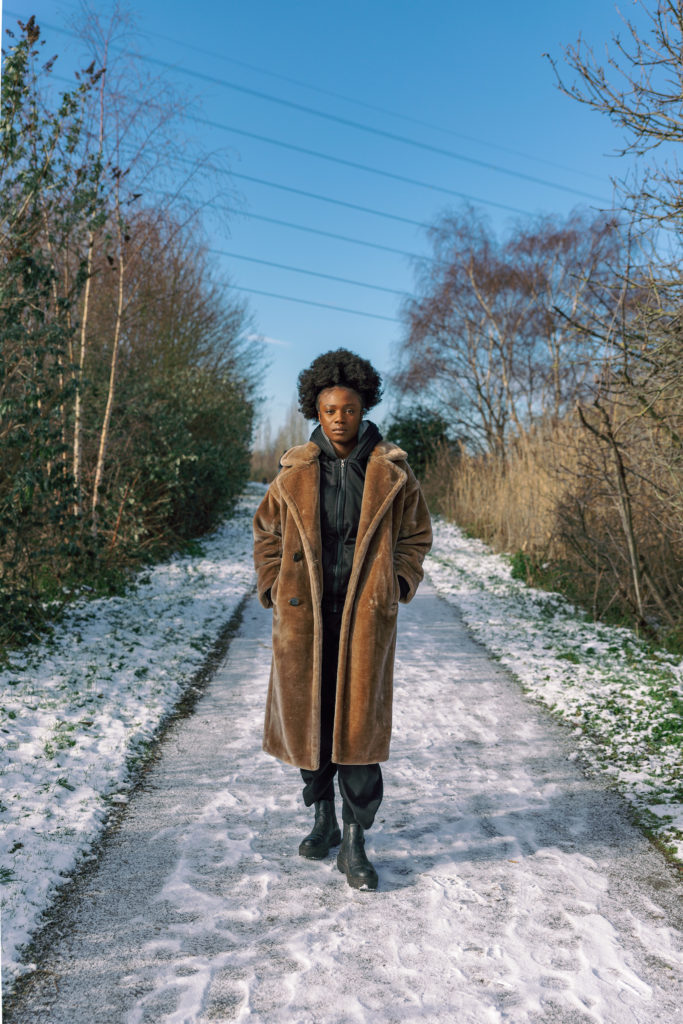
Colette Dalal Tchantcho, Actor and Theatre Maker
Of Liminality and Beyond, the Black-Kuwait Specific Story
Colette Dalal Tchantcho’s integration of names are hued by the multifarious cultures, and diverse histories and heritage that make up her arrangement. Colette occupies a space of liminality—an interstitial passage between her fixed identities of Kuwaiti and Cameroonian—where she has found her mode of expression through the art of performance. Colette, an actor and theater maker by profession and storyteller by passion, is an earnest art lover and fierce advocate of Arabs for Black lives and women’s rights beyond the veneer of hashtag culture.
Born and raised in Kuwait, then graduating from The Liverpool Institute of Performing Arts (LIPA), Colette has since moved on to star in TV series The Witcher, Netflix (2019-), Domina, Sky Atlantic / Epix / Now TV (2021), and Doctors, BBC (2018), as well as theatrical productions including Shakespeare’s Twelfth Night, and was invited by the Shakespeare World Stage at the Globe Theatre to translate and perform five of Shakespeare’s sonnets in Kuwaiti Arabic.
The liminal space also occupies a threshold stage between waking and dreaming. Both consciously and subliminally aware of her multi-layered states of being, Colette is currently gearing up to release her self-reflexive, autobiographical solo-show, Dreamer. About the realities and experiences of a black woman in Arab society, Dreamer, Colette shares, is “depicting my upbringing in Kuwait. It’s my world. And I hope that it shares the Black-Kuwaiti specific story.”
"No one will [incriminate you for making attempts to build bridges]. Show that you are making the change, that you are proud of that change, and that you are working consistently on that change. A great person does not get built in one day—a great people as well. They have teachers from all over. We have that mentality [in Kuwait] that it takes a village to raise a child. So, instead of having one voice let’s allow for dialogue between the varying and diverse communities that exist within our borders."
COLETTE DALAL TCHANTCHO
Excerpt from the interview
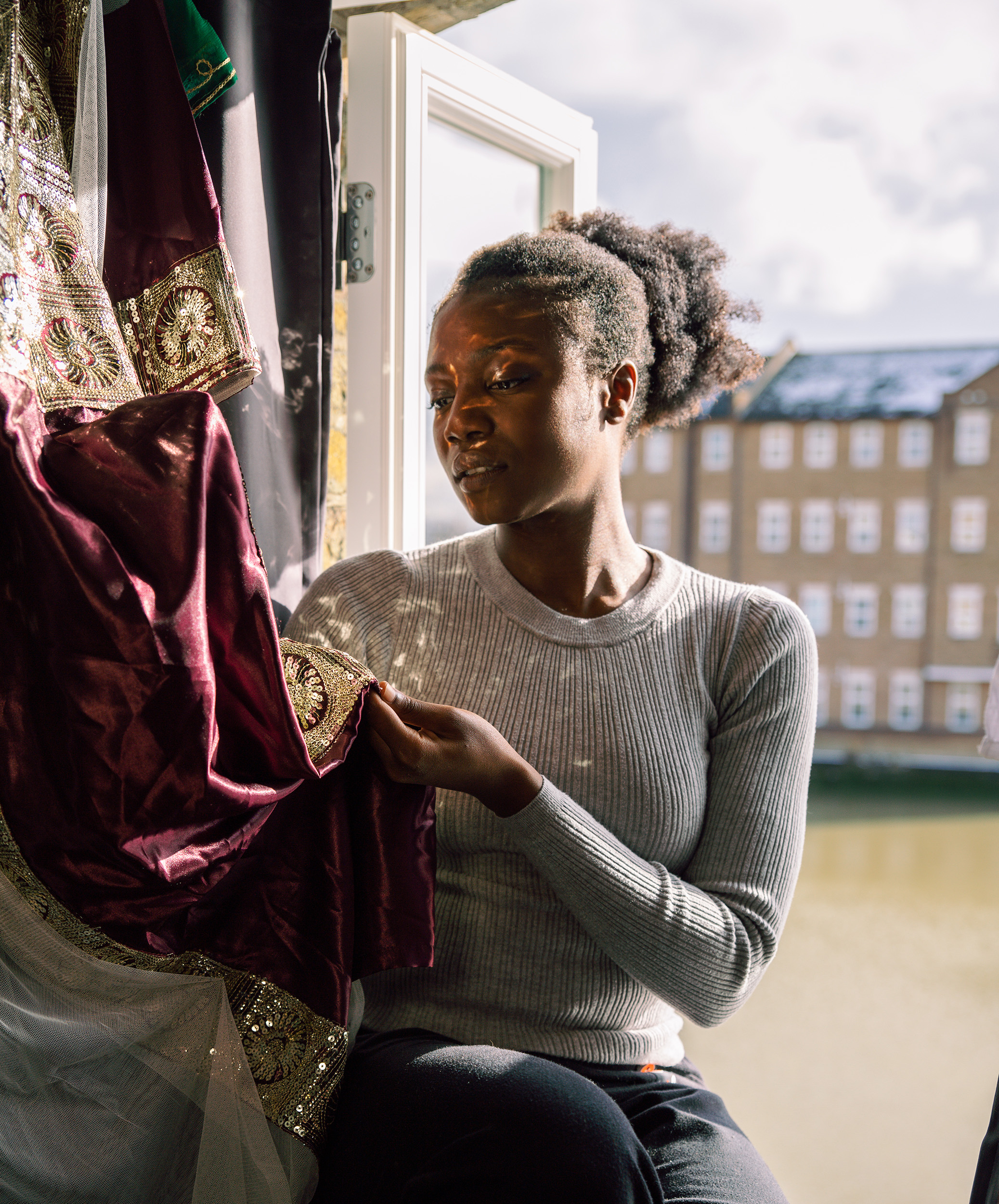
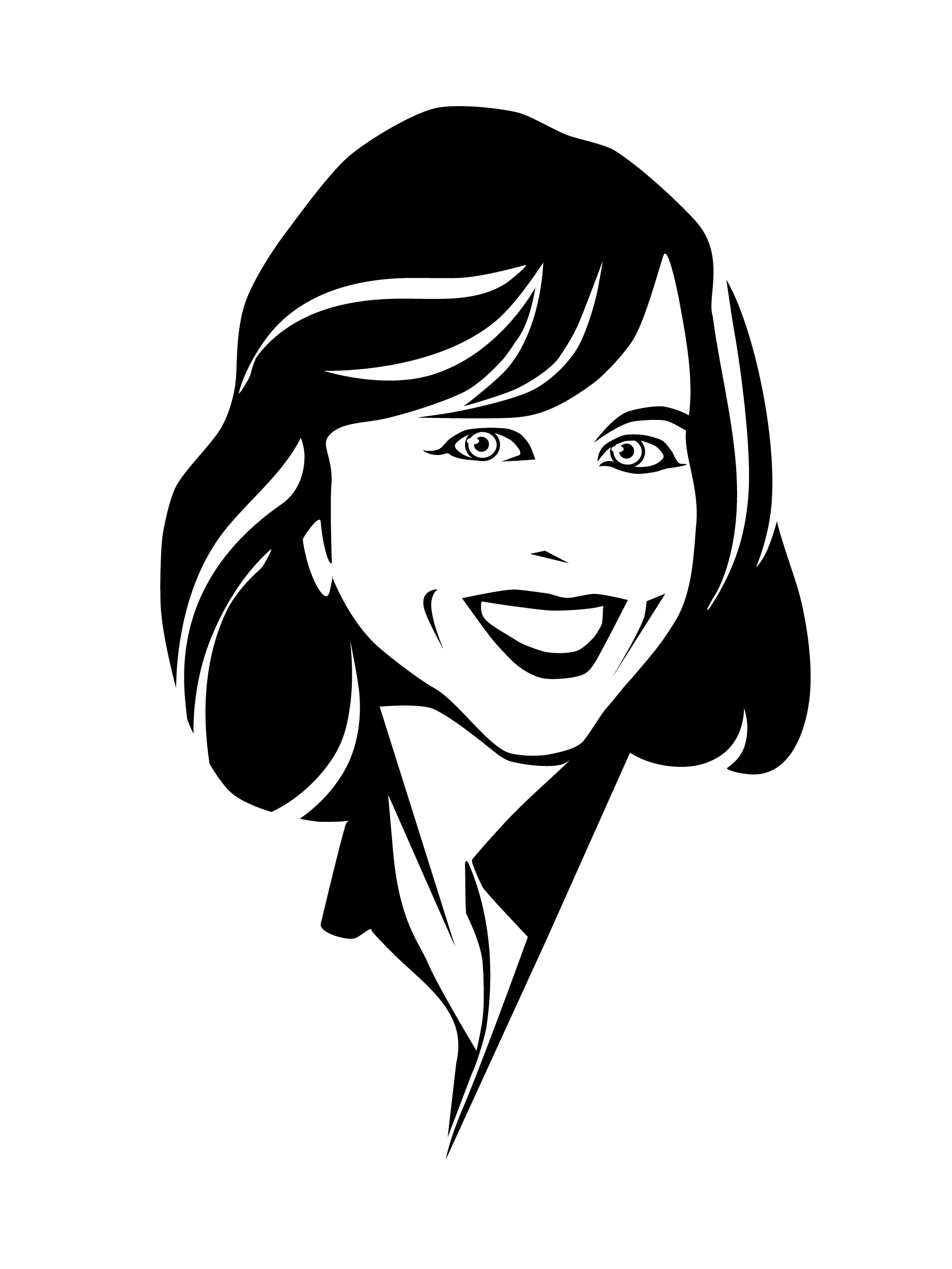
Gender and COVID-19 in the Gulf & Small Businesses
Dr. Melissa Langworthy
In this article, I ask what impact COVID-19 has had or is likely to have on women entrepreneurs in the region, and whether the current policy responses are sufficiently responsive to the needs of women business owners. After the 2008 financial crisis, research by Cornerstone Capital shows that women entrepreneurs were key to recovery in the United States, creating 1.8 million jobs. Creating gender responsive policies for entrepreneurs in the Gulf will establish a foundation to support both the speed and equality of recovery of the region.
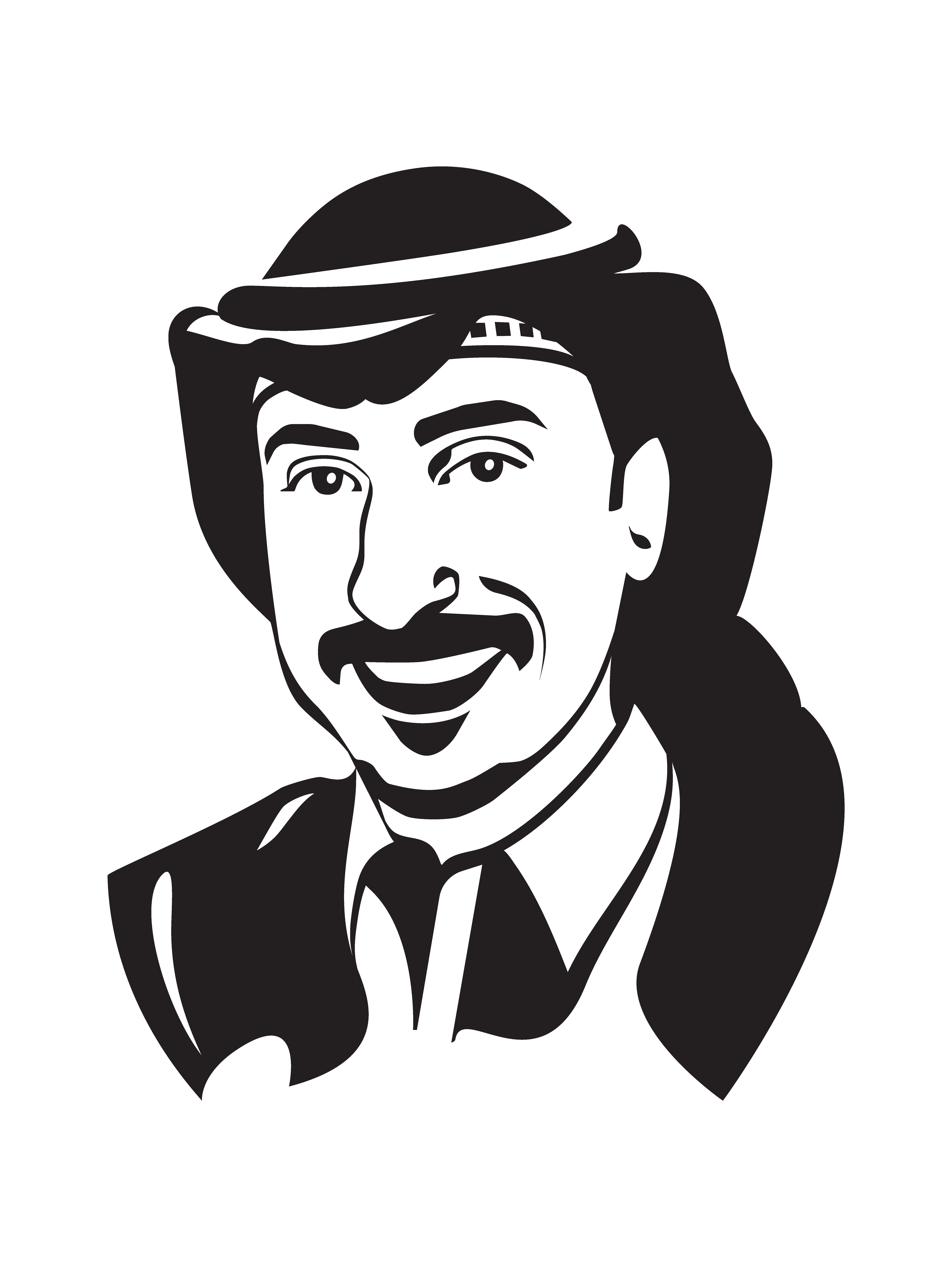
Netflix and Its Cultural and Economic Hegemony
Dr. Abdulrahman Alghannam
The Western cultural hegemony has no doubt been strengthened by the local media policy and our daily use of its content. For example, local productions are watched on terrestrial and satellite TV channels that are accessible free-of-charge, while foreign productions do not mind that we pay to watch them, whether at the cinema or on paid platforms. Although there are some shortcomings to the concept of imperialism or cultural colonialism, it is an important perspective to explain the nature of the hierarchical relationship between American media and technology, and a global approach to culture and content creation.
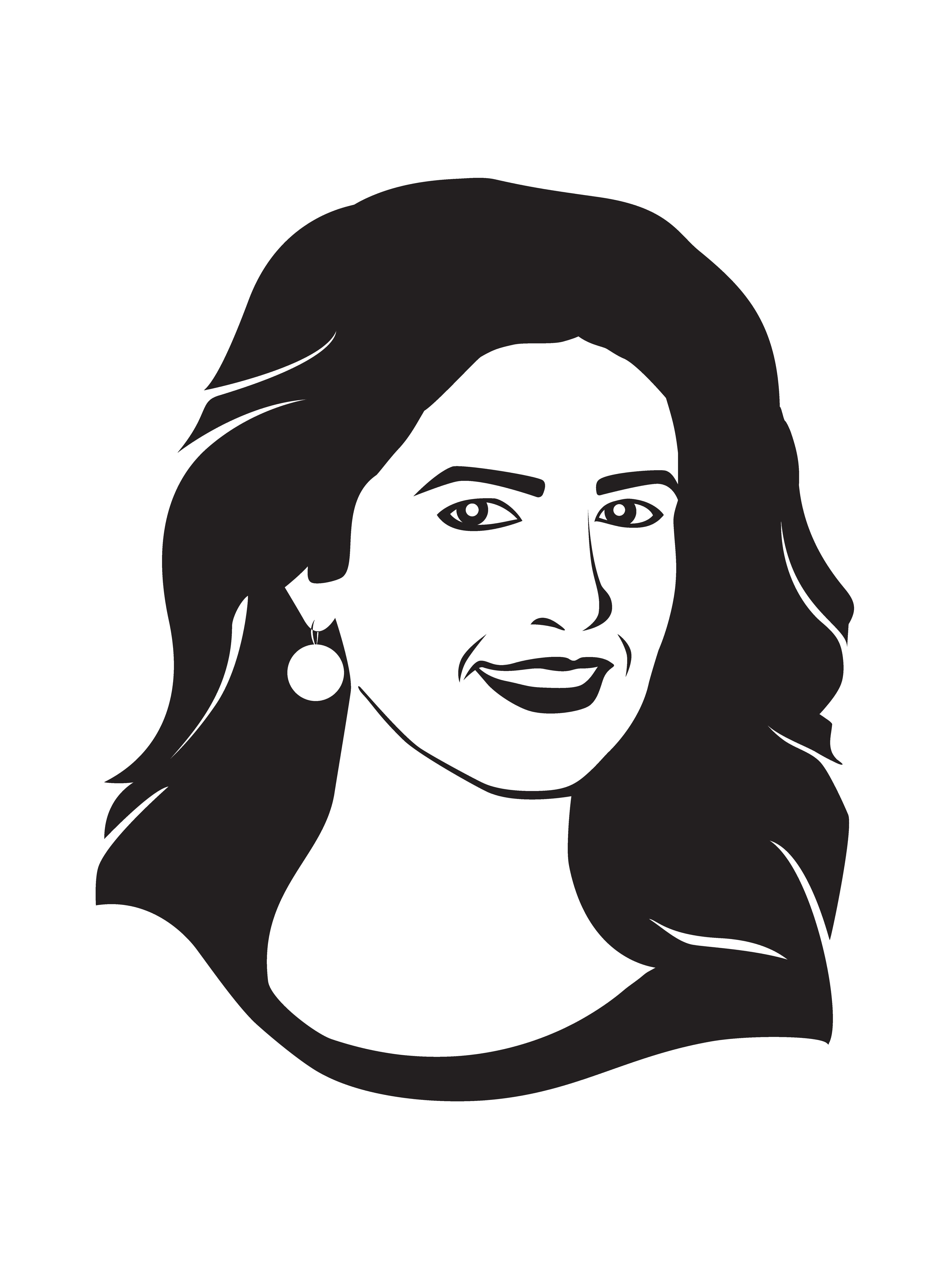
Art Education as a Site for the Carnivalesque: Kuwait
Dr. Jawaher Khaled Albader
Art studios are necessary, safe spaces for different types of learners to know more about their passions, strengths, and inner quirks. When I am in the Art Studio, I feel participants take down their guard, there is no judgment, just a safe space of exploring and feeling the freedom to create. There are some rules like respecting others, not criticizing each other's work, and zero tolerance towards bullying that are core requirements for working in the Studio. These guidelines demonstrate the instructor’s acceptance of all ideas, thoughts, and artworks without ridicule or judgment.
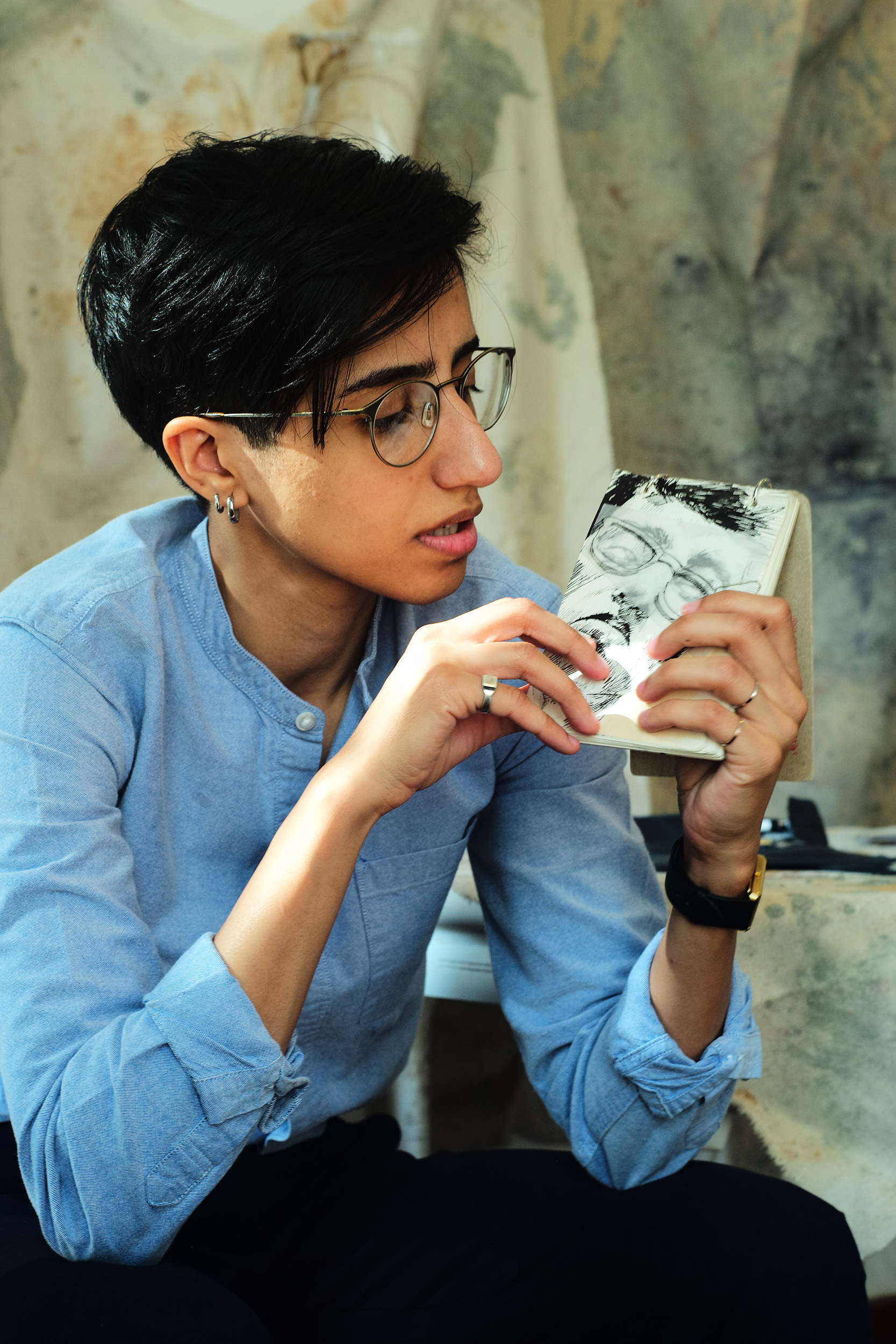
Zahra (Zouz) Al-Mahdi
A Peerless Artist, Filmmaker, Writer, and 1st Kuwaiti TED Fellow
Zahra (Zouz) Al-Mahdi, otherwise known as Zouz the Bird on social media, is a Kuwaiti artist, writer, and filmmaker who stays relevant by constantly evolving through a number of artistic mediums—from collage work, ink sketches layered over photographs, installations of dissected anatomical figures, and animation on live action. Recently, she was nominated and accepted to join the 2020 fellowship program to be the first Kuwaiti TED fellow (not to be confused with TEDx).
"How do you start with the form? How do you start with the canvas? Why don’t you start with an idea, or a feeling, or a thought, or a connection? And then you transform it into anything else. But if you start with staring at a canvas, then you’re limited. So even with writers, why don’t you start with research? Making notes, or a joke, or something. Why do you start with a keyboard and an empty document? There’s nothing scarier than an empty page. Of course it’s scary, you have nothing. Why are you here? […]. So for me, everything I do, everything I think about, is something that I’ve seen, it’s a conversation that I’ve had that sparked something. Research. Everything is research."
Zahra Al-Mahdi
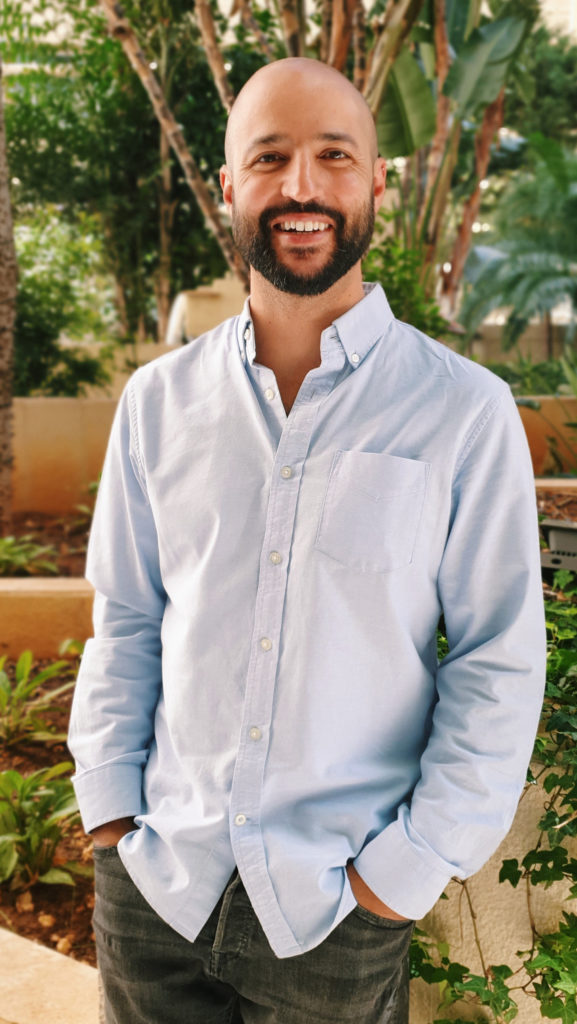
MIKEY MUHANNA, afikra
On Redefining and Reframing How We Teach Curiosity: In Conversation with Founder of afikra, Mikey Muhanna
Mikey Muhanna is the founder and Executive director of afikra, a movement to convert passive interest in the Arab world to active intellectual curiosity. Muhanna is a former high school teacher, actuary, and investment quant. Based in Beirut, he currently serves on the management team of i.e. Muhanna & co., the largest actuarial consulting firm in the region.
At the first event, though, we had about probably 20 people. It was very clear that this was scratching an itch that not only I had. Everyone said, “how have we never done this before? How have we never gotten together in a thing that's not a party nor a political protest, and it's focused on just learning?” And that's how [afikra] started.
Mikey Muhanna
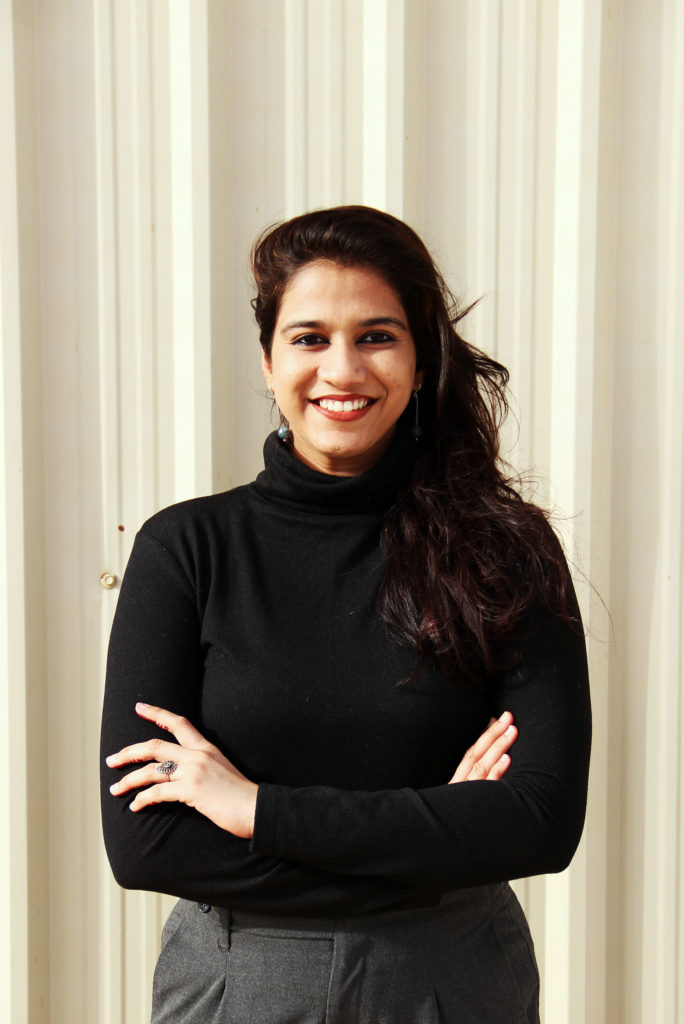
Zarrin-Fatima Shamsi
Experiments with Print: A Conversation with Zarrin-Fatima Shamsi
Zarrin-Fatima Shamsi is an emerging visual artist and printmaker who moved to Kuwait from India in 2019. What makes her prints unique is her inclination towards natural objects, like leaves and shells, and how she incorporates impressions of them into monoprints. As the pandemic moved life online, Shamsi displayed her art in numerous virtual exhibitions during the past year.
For me, the central theme of my work was women. I was focusing on the physical changes and hardships that a woman has to go through during her lifetime. And I was experimenting with different materials at that time. I was juxtaposing different objects and materials on my paintings; for example, fish bones, safety pins, gauze, etc. Slowly and gradually, I started looking at different objects around me (mostly natural objects), which I was able to relate to femininity in terms of their visual and symbolic quality.
Zarrin-Fatima Shamsi
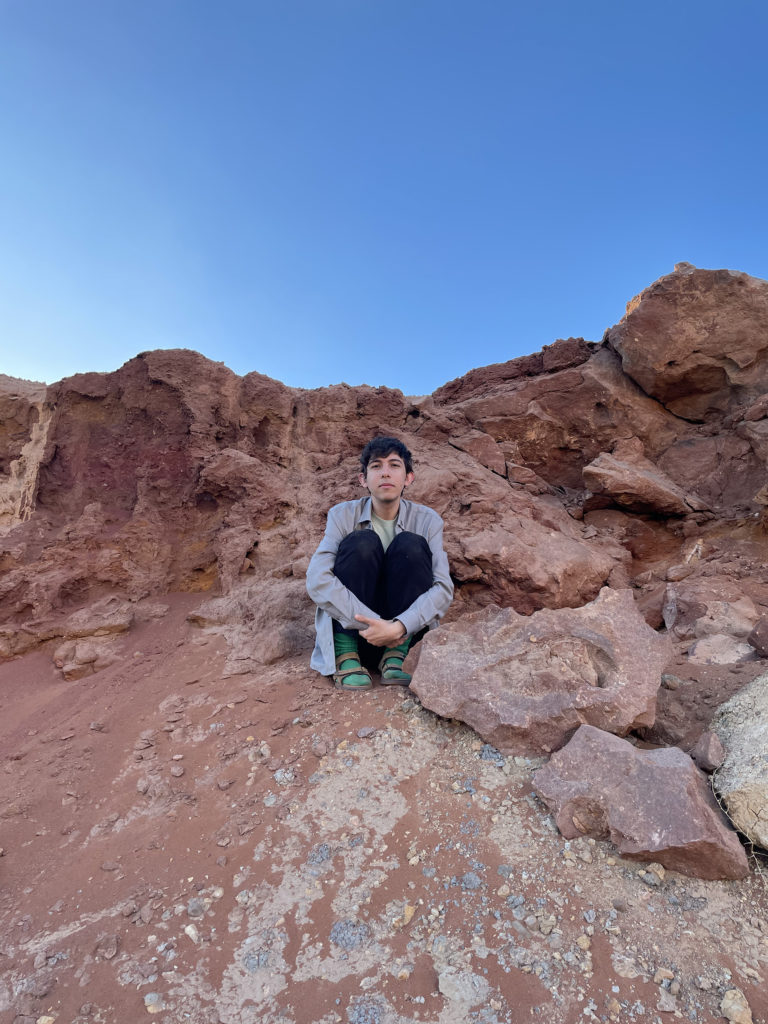
A Net of Encounters, in the Present Moment
Eslam Abd El Salam
"Little did I know that my passion lies in archiving and I have been a natural archivist since I was a little kid. Archiving all of my encounters and experiences and forming an enormous net and library of memories that have always stayed with me, not knowing that one day those visual lines of thoughts would have the capacity and urgency to be born out of and reflected from my mind’s eye."
Eslam Abd El Salam

A Vivid Memory of Time and Place: Artist Mohamed Sharkawy, Between Egypt and Bahrain
I was born in rural Egypt, where it’s renowned for its murals that are narrative of people’s personal experiences. Using simple yet modern tools, I try to reexamine some of the scenes during my upbringing there.
Mohamed Sharkawy
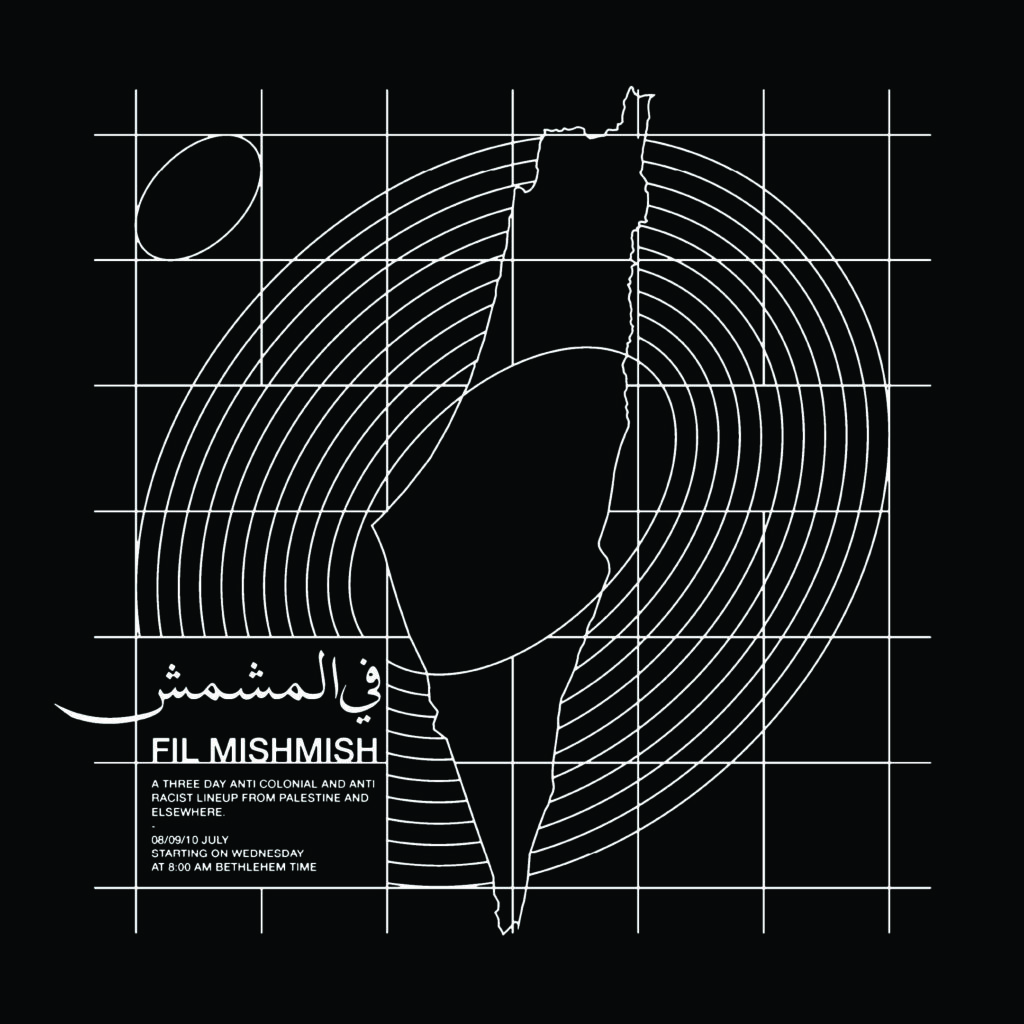
Radio Alhara: Communal Media of the Third Space, from Palestine to the World
Radio Alhara is an accumulation or connection between classical radio and social media, in a way that takes the structure of collective-listening and uses the abilities of social media to connect people together. It takes from both sides and creates a third, communal media, if you want to call it that. I think this kind of structure is inevitable in a time that revolves around the development of the media and the collective spaces online.
Radio Alhara team member, Yazan Khalili
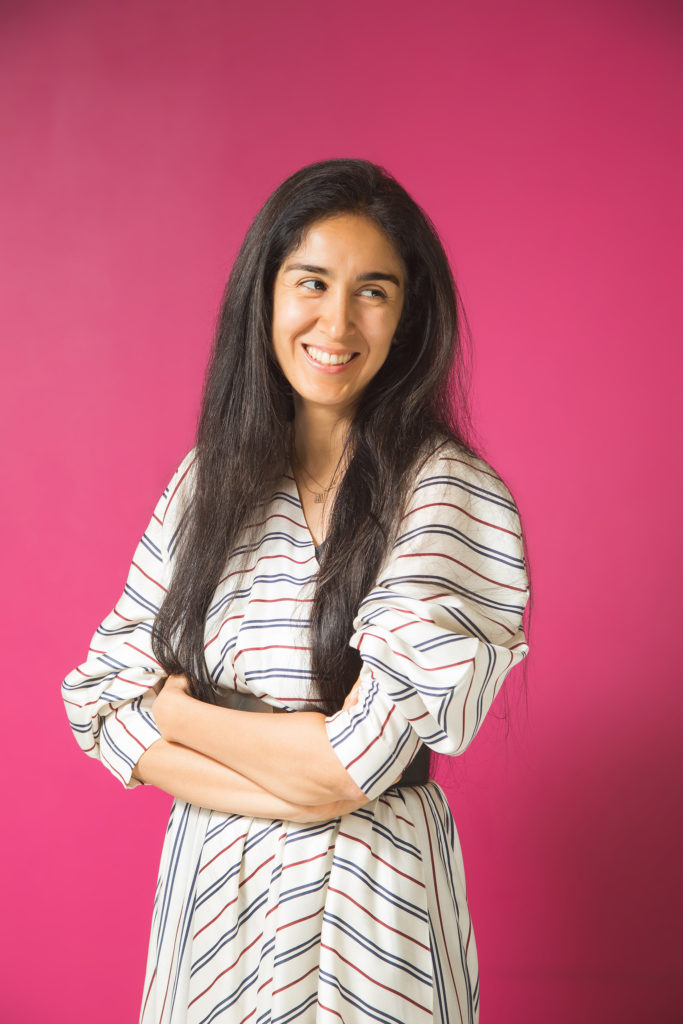
23 Degrees North, A Learner’s Latitude: Insights into Nadia Al Lawatiya’s Architectural Journey
Labels, like the 'first chartered female architect in the entire Gulf,' and recipient of the National Entrepreneurship Award 2014 for Best Small Enterprise in the service sector, can become heavy quickly. It’s tricky what one chooses to celebrate. The difference between empty labels and true merit is in the added value offered. […]. Looking beneath the surface though, I quickly realized that these labels don’t mean much after a while in terms of winning and work. Questioning what my real values are, what my firm truly brings to the table, and what my clients entrust me to do, I discovered that my true strength and what sets me apart from the rest is community engagement.
Nadia Al Lawatiya
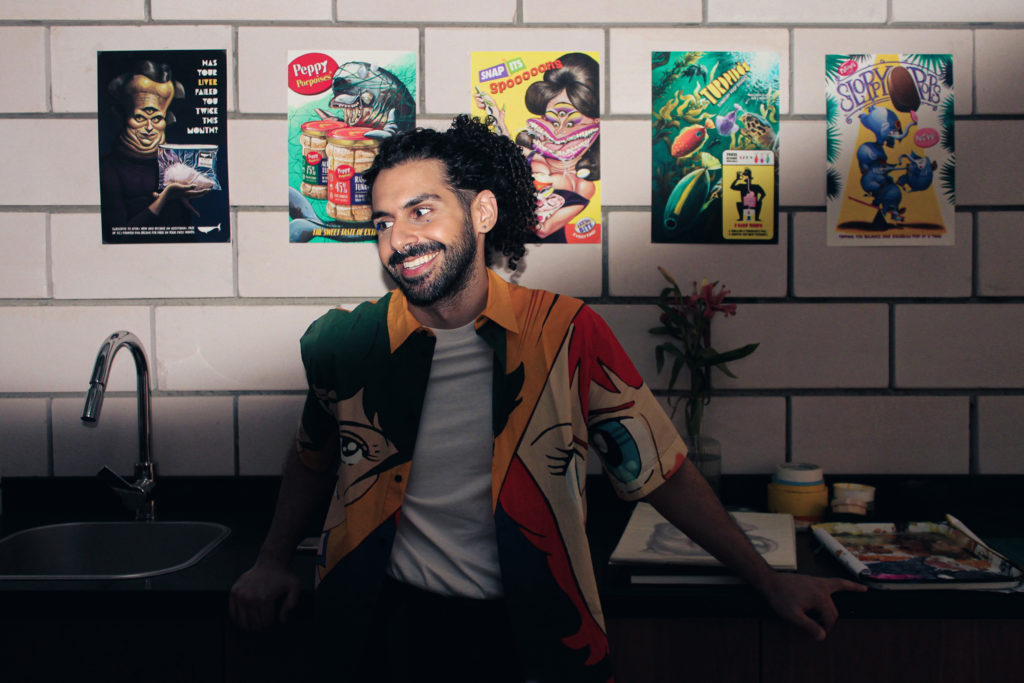
Obadah AlJefri: An Artist with a Clear Vision and Sense of Humor
Oftentimes the visuals I create are manifestations and visual metaphors for different issues exploring the willful ignorance and the rationalized beliefs we adopt within the different cultures we subscribe to socially. As an artist, I believe it is imperative for me to reflect on these issues to bring awareness into our collective consciousness. I also believe that it is one of an artist’s main roles within a culture, society, or time to reflect the realities of their surroundings, no matter how ugly those realities are.
Obadah Al Jefri
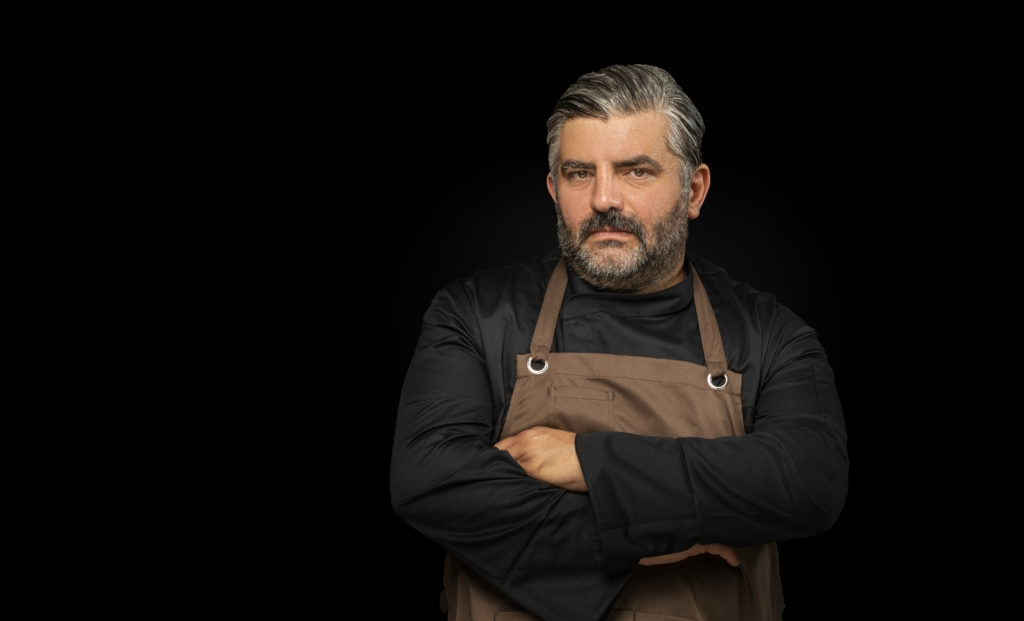
Omar Sartawi: An Unapologetic Food Artist
Like I said, I want to make you hungry. I don't want to feed you. If you want to eat, you go somewhere else. I don't mind feeding you something that doesn't taste good because it's part of storytelling.
Omar Sartawi
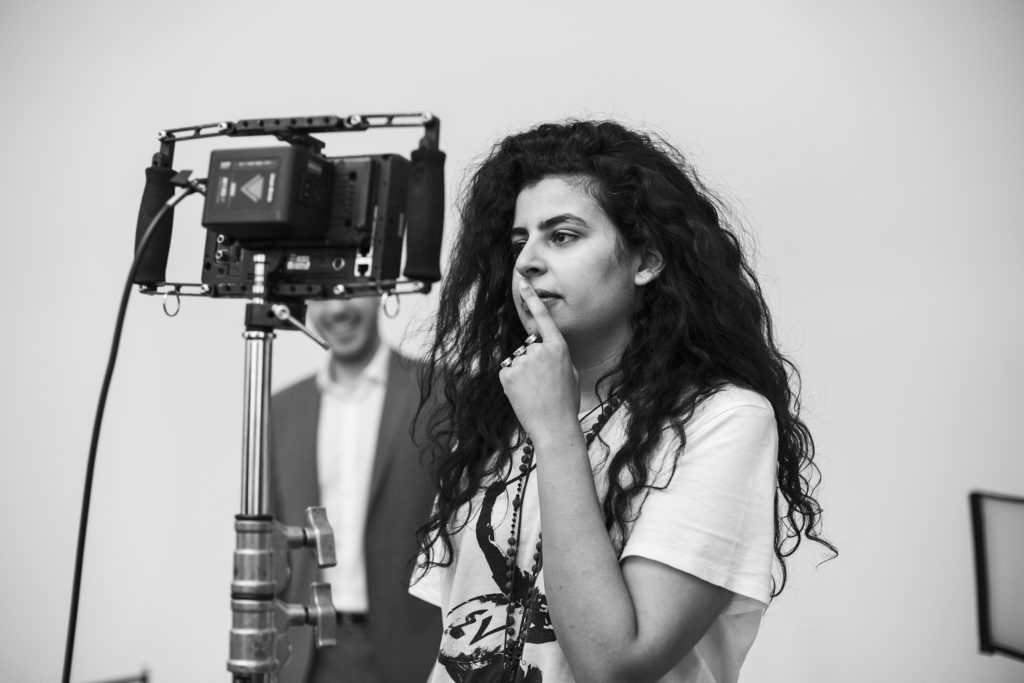
In Conversation with Hamida Issa Alkawari: In the Real Realm of Film from Qatar and the Gulf
So for me, it's about having this really strong connection with my past and trying to translate that in my films. It's a form of rediscovering my identity. It's a form of documenting and exploring my identity, and preserving it for future generations. And I feel like I've only just begun.
Hamida Issa Alkawari
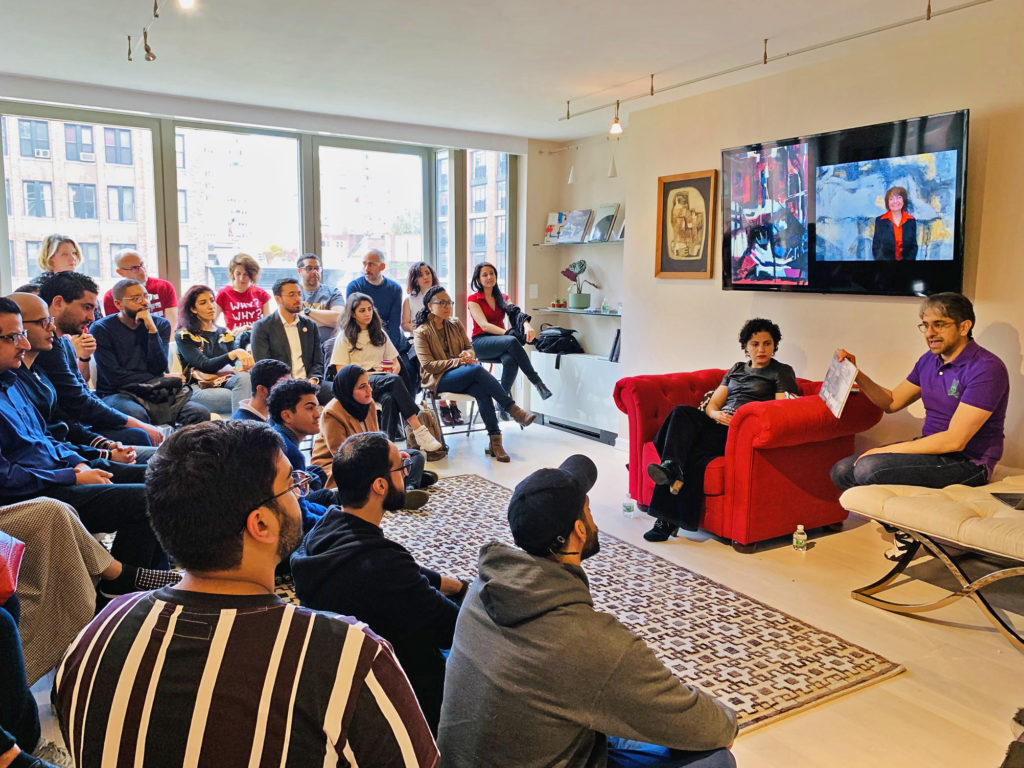
Insights from Sultan Sooud Al Qassemi: On Cultural Majlis and the Transition to the Digital Sphere
My priority is to give an overview of an artist's life, and not just their work. On a personal level, I am keen to know about their teachers and peers in art college […]. […]. These dialogues act as documentation and archiving and humanizing the artists, who become more than just a name next to an artwork.
Sultan Sooud Al Qassemi

